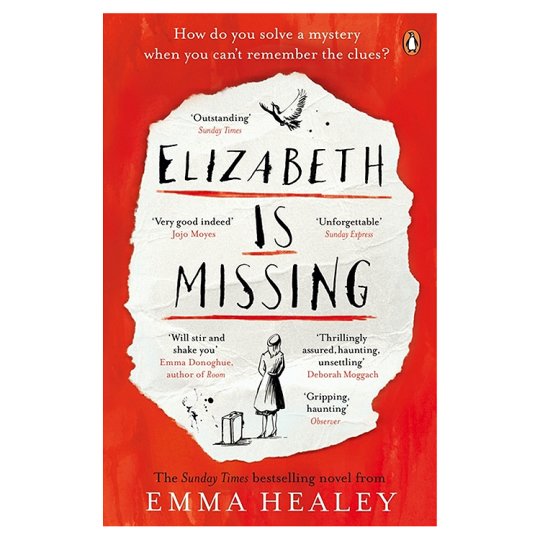 If you were at our house, you would have just heard a very angry rant, full of expletives and delivered at higher volume than necessary. In other words, I was shouty and sweary and cross. Why?
If you were at our house, you would have just heard a very angry rant, full of expletives and delivered at higher volume than necessary. In other words, I was shouty and sweary and cross. Why?
Searching for a front-cover image of the fantastic book I’ve just finished, I came on a review of such gob-smacking stupidity that I just exploded. As my husband calmly commented, there are people out there who just don’t understand. They don’t realise that what makes fiction so wonderful and so valuable is that it can do the impossible. It can get us inside someone’s head. Inside someone’s life. Thoughts, feelings, experiences; the whole catastrophe.
This reviewer, probably a perfectly competent person in her field (which, by the way, is dementia), just didn’t get it. So literal-minded, that she objected to the first person narrative on the grounds that there is no way a woman with dementia could have written it down. She suggested a device for getting around this problem – it could be presented as an audio-taped interview. Yes. She did. I am going to resort to this – !!!!????
But perhaps now I should calm down a little, forget the silly review and tell you about Elizabeth.
My good friend KK – a voracious reader, if ever there was one – pressed Emma Healey’s Elizabeth is Missing on me more than a month ago. “You’ll love it,” she said. And every time I spoke to her, she asked if I’d read it. I just hadn’t got around to it. So at last, when it was a rainy weekend and I couldn’t get out into the garden, I started…and found that it is one of those rare beasts, the un-put-downable book. It’s a genre-bender, too. Another rare beast, and booksellers and publicists love them because they scoop up two different camps of readers. This one is both an insight into the fragmented mind of a dementia sufferer and a murder mystery set in post-war England.
The heroine, Maud, is convinced that her friend Elizabeth is missing. She is determined to find her.
The thing is to be systematic, try to write everything down. Elizabeth is missing and I must do something to find out what’s happened. But I’m so muddled. I can’t be sure about when I last saw her or what I’ve discovered. I’ve phoned and there’s no answer. I haven’t seen her. I think. She hasn’t been here and I haven’t been there. What next? I suppose I should go to the house. Search for clues. And whatever I find I will write it down. I must put pens in my handbag now. The thing is to be systematic. I’ve written that down too.
Elizabeth lives near the neighbourhood where Maud grew up. As Maud returns again and again to look for Elizabeth, finding clues, writing herself notes, she revisits her past. Memories – fresh, intact and full of detail – show us Maud’s life just after the war with her parents, their lodger Doug, sister Sukey and her new husband Frank. They take us back to the terrible time when Sukey went missing. And against the odds, Maud solves the 70-year-old mystery of her sister’s disappearance.
Healey gets us inside Maud’s damaged mind.
When I reach the creamy wall I find that dust swirls here too, but it rises in the light and the air is cooler. I pull up a sitting thing, for sitting on. In a minute I’ll have to go back. There’s something I must do. I cant remember what it is just now, but I know it’s important; someone will tell me if I ask. The filled breads, the stuffed and buttered breads, are cut into squares, and my stomach growls, but I can’t work out what I’m to do with them. I watch a man take one and bite into it, his fingers crushing, his lips sloppy. I feel queasy, but copy him all the same, cramming the things into my own mouth. It slips against my tongue, cold and sharp and foetid at once. Someone comes at me, smiling, and I move hastily out of the way, into the kitchen, where the oven’s on, humming its own low, laughing comments, wearing its own hot black clothes.
Elizabeth is Missing is moving, heartbreaking, funny. Astonishing, fascinating. And it’s a first novel. Read it!
